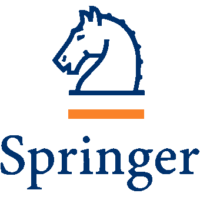Energy, Sustainability, and Society (Springer)
“PROSUMER PARADIGM – managing the global energy transition and market obstacles through improved stakeholder collaboration”
Guest Editors:
Dr. Tracey Cosbie
Technology Futures Institute, School of Science and Engineering, Teesside University; Middlesbrough, UK
Zia Lennard, MBA
Innovation Manager, SP Conference Chair, R2M Solution, srl.; Pavia, Italy
Introduction:
Distribution system operators (DSOs) are facing new actors and market players in the energy transition to enable the optimizing of field resources and ameliorated communications as a solution for increasing grid reliability. Demanding consumer expectations in a more competitive energy marketplace have led to a wide-scale focus on storage and flexibility management with successful pilots having proved the cost-benefit problem.
With the development of our society, the demand for energy, in particular electricity, is ever-increasing. To be able to produce electricity when the renewable sources are available and to use electricity when we need it, improved energy storage solutions are needed. A key challenge is to demonstrate and evaluate innovative approaches for thermal and electrical energy storage systems and to find affordable and reliable solutions that lead to an increased electricity self-supply [STORY project].
To keep pace with the demands of the modernizing industry, utilities and energy companies are streamlining services and resources through digital management platforms can increase productivity and reduce operational expenditure. There is a monumental need to balance mission readiness with the availability of equipment against budget or policy constraints. “Prosumption” from the perspective of energy (e.g. smart energy consumers or producers who also consume energy such as self-consumption scenarios) are undoubtedly at the forefront of all issues surrounding the integration of renewables into competitive public and private markets. The relevance exists on all scales (global, national, local, etc.) and applications (e.g. buildings, districts, cities, etc.).
Keywords include but are not limited to:
- Buildings, facilities, and home energy management;
- Construction project & urban habitat management;
- Big data privacy & grid (cyber)security management;
- Decarbonization initiatives & nature-based solutions;
- Demand-side response tools & ICT in peak shaving;
- Distributed renewables generation & load balancing
- Electricity grid reliability & congestion management
- Flexibility commoditization & energy governance
- Stakeholder requirements & user acceptance studies
- Battery storage of renewable energies management
- Social housing amelioration & energy communities, etc.

